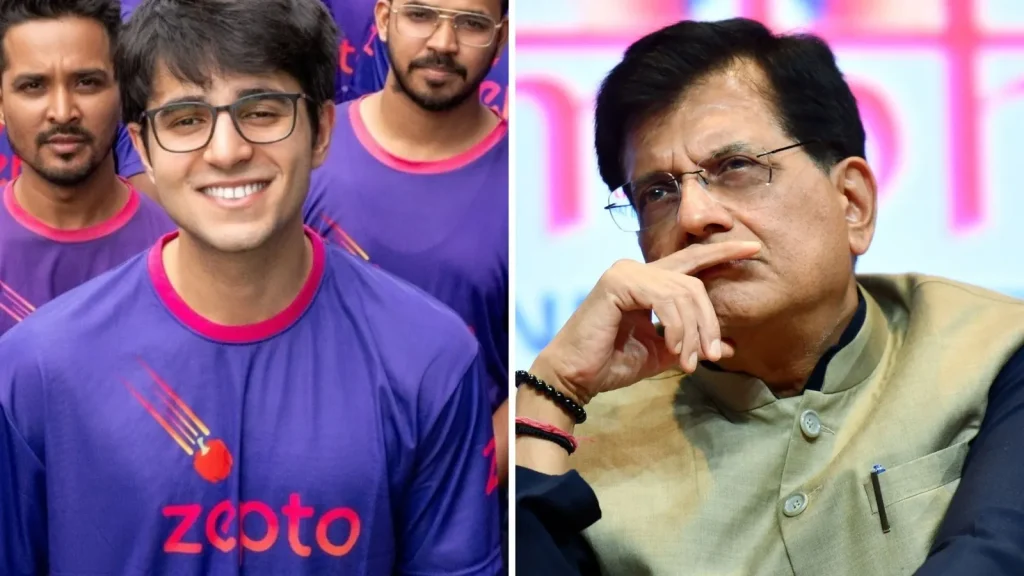Zepto’s CEO and other entrepreneurs defend the quick commerce model, call for stronger government support for deep-tech.
Goyal’s Remarks Spark Industry Outrage

At the Startup Mahakumbh event in New Delhi, Union Commerce Minister Piyush Goyal criticized Indian startups for focusing too heavily on food delivery and quick commerce, rather than deep-tech innovations. Goyal compared India’s ecosystem unfavorably to China’s, questioning whether startups were adding real value to the economy.
“Do we want to make ice cream or chips? Dukaandari hi karna hai?” he asked, pointing to the dominance of low-skill gig jobs in the sector.
Zepto CEO: Quick Commerce Has Economic Value
In a sharp rebuttal, Zepto co-founder and CEO Aadit Palicha defended the quick commerce sector, highlighting its tangible contributions. He noted that Zepto had created 1.5 lakh jobs, paid over ₹1,000 crore in taxes, and attracted more than $1 billion in foreign investment.
“It is easy to criticise consumer internet startups in India, especially when you compare them to the deep technical excellence being built in the US/China,” Palicha said on X (formerly Twitter).
Other Entrepreneurs Join the Pushback
Entrepreneurs across the tech spectrum rallied behind Palicha. Ashneer Grover, founder of BharatPe, said India should emulate China’s growth path, which also began with consumer tech.

“China also had food delivery first and then evolved to deep tech… maybe time for politicians to aspire for 10%+ economic growth rate for 20 years before chiding today’s job creators,” Grover posted.
TV Mohandas Pai, former CFO of Infosys, echoed this sentiment and criticized the government’s role in supporting deep-tech.
“There are startups in chip design, EV charging, robotics, etc., but where is the capital? Long-term investors still don’t invest despite your efforts,” Pai said, pointing to regulatory hurdles and lack of support from public sector buyers.
Goyal Calls for a Deep-Tech Pivot
Despite the backlash, Goyal maintained that India must shift its focus toward deep-tech innovation, including semiconductors, AI, and robotics. He stressed that only around 1,000 startups operate in deep-tech, calling it a “disturbing” figure.

He also expressed concern over the brain drain, where promising startups sell to foreign buyers at low valuations, and urged unicorns to contribute to a national innovation fund to support homegrown tech.
A Call to Build the Future
Goyal emphasized the need to inspire innovation from an early age, advocating for critical thinking and creativity among young learners. He also appealed to popular investors from shows like Shark Tank India to promote value-added, sustainable businesses.
“We need startups that shape the future—not just ones that deliver it to your doorstep,” he said.
